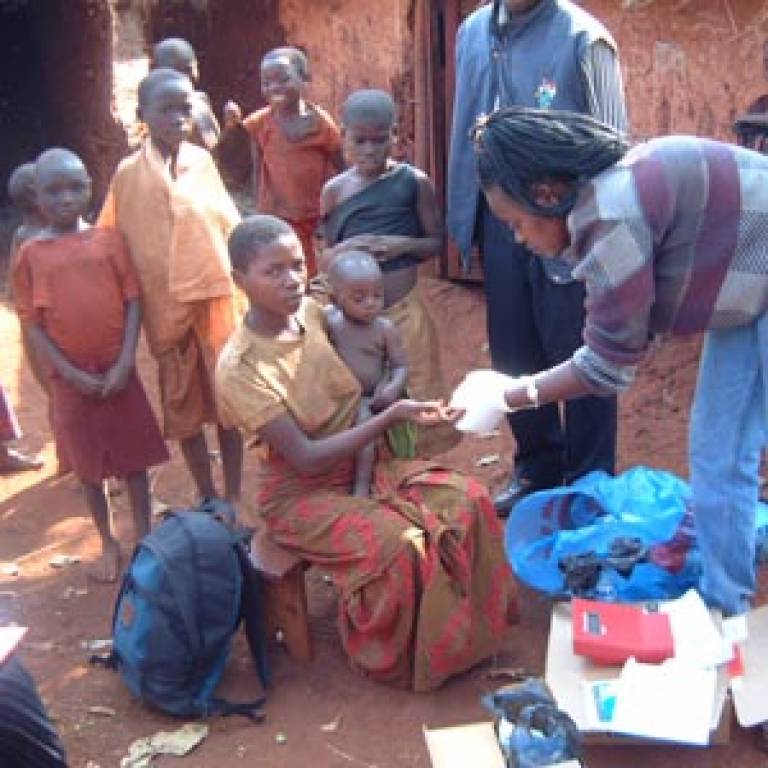Report on micronutrients for populations in crisis
7 January 2008
Links:
 unsystem.org/scn/" target="_self">United Nations Standing Committee on Nutrition
unsystem.org/scn/" target="_self">United Nations Standing Committee on Nutrition
Dr Andrew Seal, a lecturer in international nutrition at the Centre for International Health & Development at the UCL Institute for Child Health, has published a paper on micronutrients in populations facing crisis conditions in the developing world.
The report, 'Assessing micronutrient deficiencies in emergencies; Current practice and future directions' looks at ways of assessing and responding to deficiencies in vitamins and minerals such as vitamin C, niacin and iron. Micronutrient deficiencies occur more frequently when people have a monotonous or restricted diet, so are quite common in emergency situations such as refugee camps. The deficiencies manifest themselves in conditions including scurvy and pellagra.
Written for the UN Standing Committee on Nutrition, the report outlines the need for better techniques for testing for deficiencies, and for systems to provide better access to micronutrients for populations in crisis, in particular through improvements to rations or through nutritional supplements and fortification of foods.
To find out more, follow the links at the top of this item.
Image: A UNHCR/UCL survey of micronutrient deficiencies in a refugee camp in Tanzania
 Close
Close

